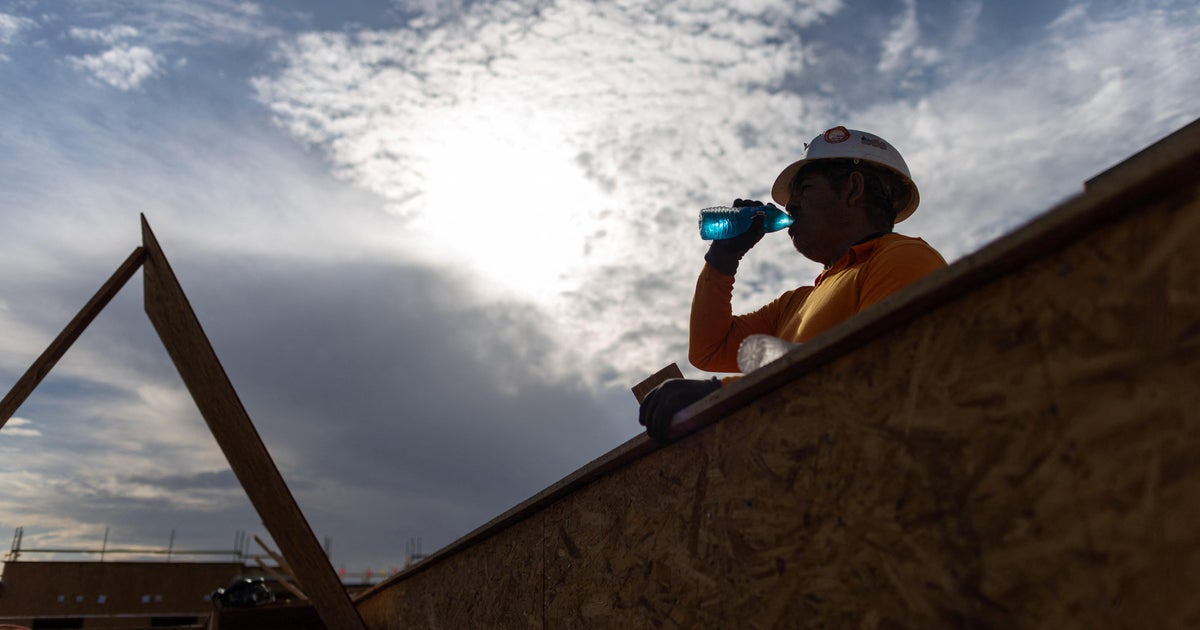$9,000 power bill during Texas blackout prompts class-action lawsuit
A Texas woman who was hit with a $9,000 power bill this month has sued her electricity provider for price gouging in a case that highlights the risks some consumers face in the state's deregulated energy market.
The suit is the first of its kind after a harrowing week of snow and subfreezing temperatures that brought on skyrocketing energy prices for thousands of customers in the state and blackouts for millions of others. The economic toll of the extreme weather event could top $200 billion, putting the freeze on par with some of the costliest natural disasters to hit the United States.
Lisa Khoury, a resident of Chambers County in Houston, filed a class-action suit Monday against her electricity provider, Griddy Energy. According to the suit, Khoury was charged $9,546 between February 1 and 19, an amount 40 times higher than her typical bill range of $200 to $250.
Khoury said Griddy pulled $1,200 from her bank account via an auto-pay system before she stopped payment through her bank, but she still owes over $8,000 for power that was intermittent, according to the complaint. Khoury and other class members of the suit are seeking $1 billion in monetary relief.
"Griddy charged Khoury in the middle of a disaster. She and her husband mostly were without power in their home from Wednesday, February 17, 2021, to Thursday, February 18, 2021. At the same time, Khoury hosted her parents and in-laws, who are in their 80s, during the storm. Even then, she continued to minimize any power usage because of the high prices," the complaint reads.
Khoury lawyer Derek Potts, national managing partner of the Potts Law Firm, said Griddy's billing runs afoul of Texas' consumer protection laws — and that thousands of electricity users are likely affected.
Unpredictable pricing
Griddy said the lawsuit was "meritless" in a statement given to the Dallas Morning News. The electricity provider did not immediately respond to a request for comment from CBS News. On its website, the company states it does not profit from high power prices and blamed the Public Utility Commission of Texas for last weekend's astronomical hikes.
"You effectively pay the same price as a retail energy provider or utility," Griddy states on its site, noting that those prices change every five minutes.
"The PUCT changed the rules on Monday" when it directed Texas' grid provider to allow astronomically high power prices, Griddy said, adding that it was "seeking relief" from ERCOT for affected customers.
Plans like Griddy's are a relatively new feature in Texas' largely deregulated energy market. Most Texans, according to utility commission spokesperson Andrew Barlow, are on fixed-rate plans in which users pay a predetermined amount for each bit of electricity they use. In variable plans such as the one Griddy offers, consumers pay wholesale prices, meaning their bills are low in times of low demand but can quickly rise during crunch times.
A Wall Street Journal analysis this week found that, far from enjoying cheaper electricity, customers in Texas paid $28 billion more for power after deregulation over the last 20 years than they would have under traditional plans.
Some power industry experts have called variable-rate utility contracts predatory. Others have likened them to adjustable-rate mortgages that were popular during the early 2000s housing boom. Under such mortgages, a homeowner could get a slightly lower interest rate but was on the hook for interest rate hikes down the road.
"It sure looks like consumers got lured into the promise of a little bit cheaper electricity, with the fine print being, 'Oh, if there's a grid emergency you might get a bill for $5,000,'" said Costa Samaras, associate professor at Carnegie Mellon and adjunct analyst at RAND. "It may be legal, but is it right?"
The historic outages have pushed some Texas lawmakers to consider the formerly unthinkable: slapping stricter regulations on the state's energy sector.
Misled "to a grossly unfair degree"
"There's a decent claim these contracts are unconscionable," said Richard Alderman, director of the University of Houston's Consumer Law Center and professor emeritus at the university.
Texas law protects consumers who are taken advantage of "to a grossly unfair degree," Alderman said, adding that power price spikes into the thousands of dollars should qualify as grossly unfair the law.
"Would anyone in their right mind sign a contract knowing this would happen? In my mind, no," he said.
Still, such lawsuits face several hurdles. Many contracts force consumers into private arbitration, a non-juried system that tends to favor companies. Even when a consumer does make it into court, the judge is often not on their side.
"Texas courts generally are very conservative, and they often say to consumers, 'You signed that contract, you should have read it and understood what it said,'" Alderman noted.
For now, Texas Governor Greg Abbott has called power bills a "top priority" for legislators. Utilities are banned from disconnecting customers for nonpayment and have been told to pause billing.
Energy providers caught off guard
Residents weren't the only ones facing thousand-dollar power bills. Some municipalities and alternative power providers were also caught unawares. The city of Denton spent $207 million on power during the outages, close to its annual electricity budget. The power provider Just Energy said it could lose up to $250 million from the episode and potentially go out of business.
When multiple power sources failed during the weekend, the commission and Texas' grid operator, ERCOT, allowed wholesale prices for energy to rise to 300 times their typical level in order to encourage more power to come on the grid. At the time, Griddy took the unprecedented step of asking its customers to switch to other providers. However, many providers were unable to sign on new customers during the deep freeze. People like Lisa Khoury said they were forced to wait.
According to Bloomberg, nearly a dozen domain names have been registered potentially seeking clients for class-action suits, including the addresses TexasPowerLawsuit.com, TexasPowerFailureLawsuit.org and ClassActionTexasPower.org.
Consumer advocates hope that federal funds or the Texas legislature can help customers stuck with astronomical bills — and prevent spikes like these in the future.
"The money has to come from somewhere," Samaras said. "The question is, does Texas bail out these customers, or are there regulations?"



